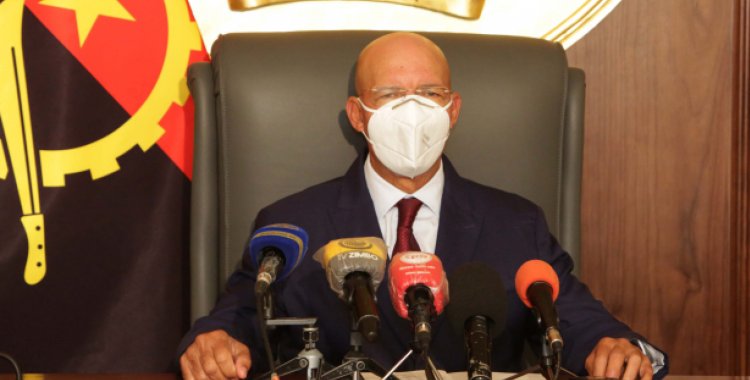The information was provided by the coordinator of the Reconciliation in Memory of Victims of Political Conflicts Commission (Civicop), Francisco Queiroz, after a visit to the central base of the Commission for the Investigation and Certification of Deaths of Victims of Political Conflicts (Cavicoip), located in the Pavilion Kilamba's multipurpose area, on the outskirts of the city of Luanda.
Francisco Queiroz guaranteed that the State will support the issue of coffins for the remains that are already being identified.
"It is a process that is ongoing. This week we will be able to call the first families to receive the remains and the State will deliver these remains in urns, in coffins, and then the families will do their funerals, according to that. which is your interest, your traditions and your ways of feeling death ", said Francisco Queiroz.
The Minister of Justice and Human Rights also stressed that the State's role is to locate where the remains are buried, exhume them and carry out DNA recognition, stressing that in this task the family has a very important role.
"They have to be very close relatives, blood relatives, so that there is no falsification of the data", said the Civicop coordinator, guaranteeing that the tests will be carried out in the country in a laboratory that works with the Criminal Investigation Service (SIC), experienced in this area. matter.
According to Francisco Queiroz, "the process is very well organized and ready to work from now on", with some people already going to the place to deal with the death certificates of their family members.
"The process is done in such a way that there is no duplication or fraud, when the applicant arrives, he goes through a screening process to see if the name of the person who requires the death certificate is already in the database (...), if he already has his name there, he goes on to the death certification phase, through the multisectoral commission created by the President of the Republic ", he explained.
After the death certificate, the citizen has the death certificate issued by the civil registry conservative, continued Francisco Queiroz, stressing that this is a very emotional moment, therefore, conditions were created to help these people from a psychological and medical point of view. .
"Everything is well organized, it is a chain that starts at one point, goes through several stages until the death certificate. In an hour or less, the citizen is attended to and leaves here with the death certificate," he said.
Francisco Queiroz ruled out the possibility of the State providing the victims' relatives with any compensation or social assistance to the families, so as not to remove the prestige of paying homage to the deceased.
"Since the beginning of Civicop, two years ago, that this became clear, we are not talking about money, we are talking about honoring memory, celebrating the hug and giving forgiveness and this is not done with money, the monetary issue is totally out of the question ", he stressed.
According to the Civicop coordinator, the whole process will culminate with the opening of a memorial "where romages can be made, periodically, in memory of these victims".
"So that we can remember them and so that it can be a moment of reflection, of recollection, so that never again in our land situations of political conflict that lead to death", he stressed.
The Civicop coordinator stressed that the experience of this process could be replicated in other cases, which did not elaborate further.







